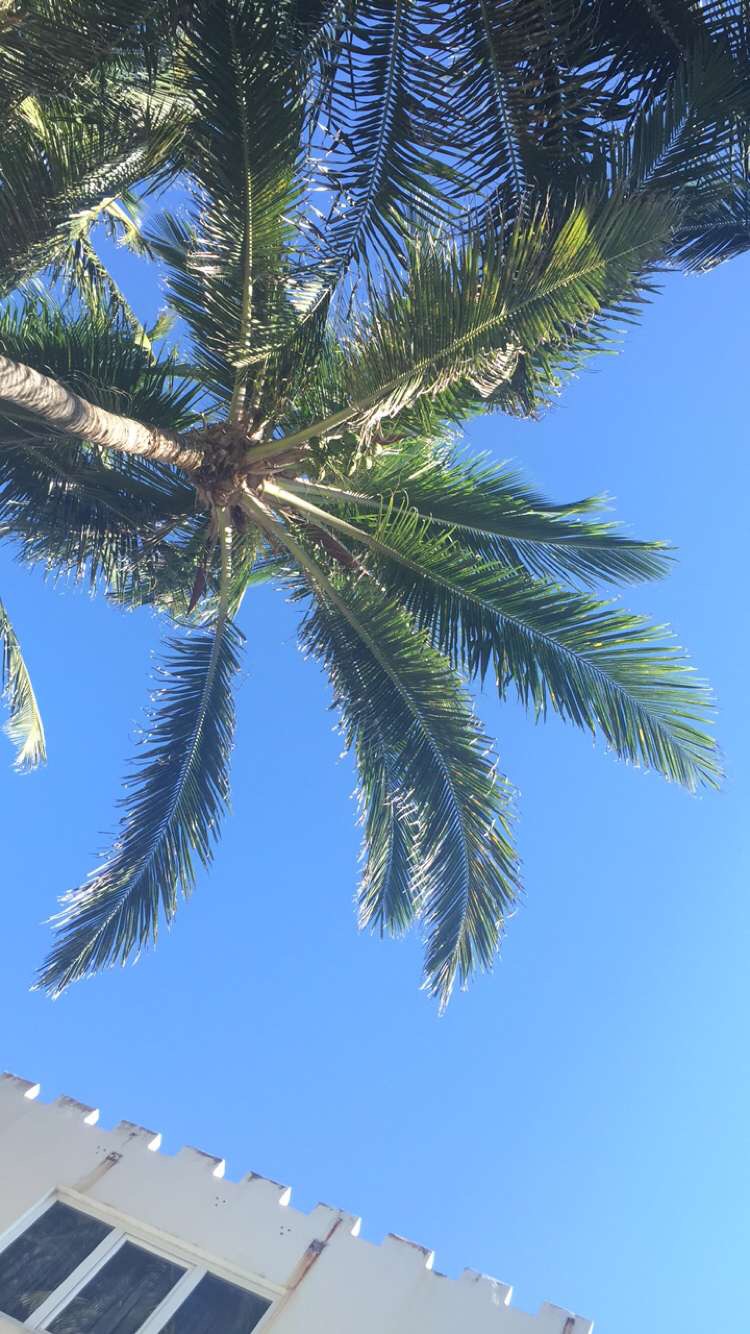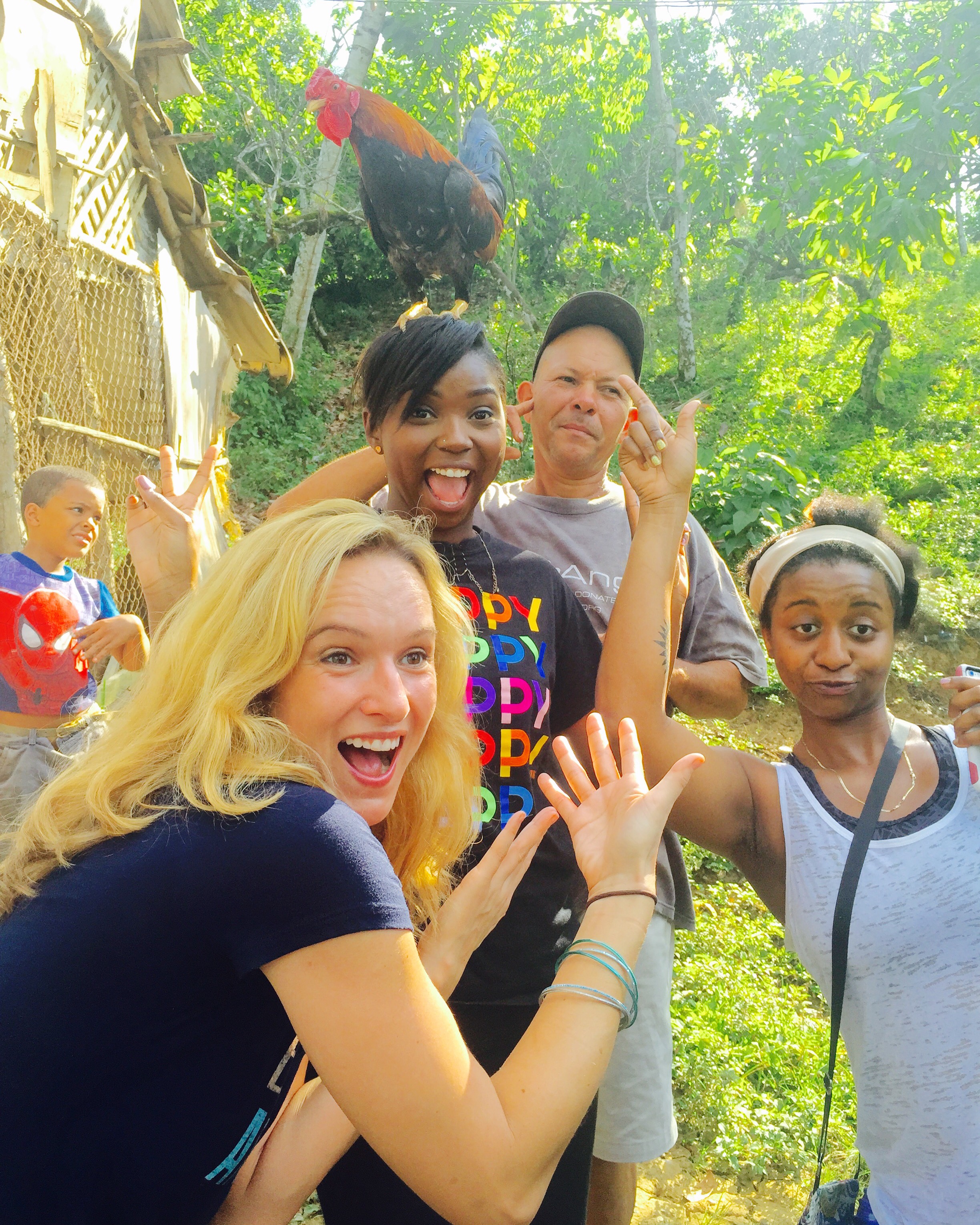
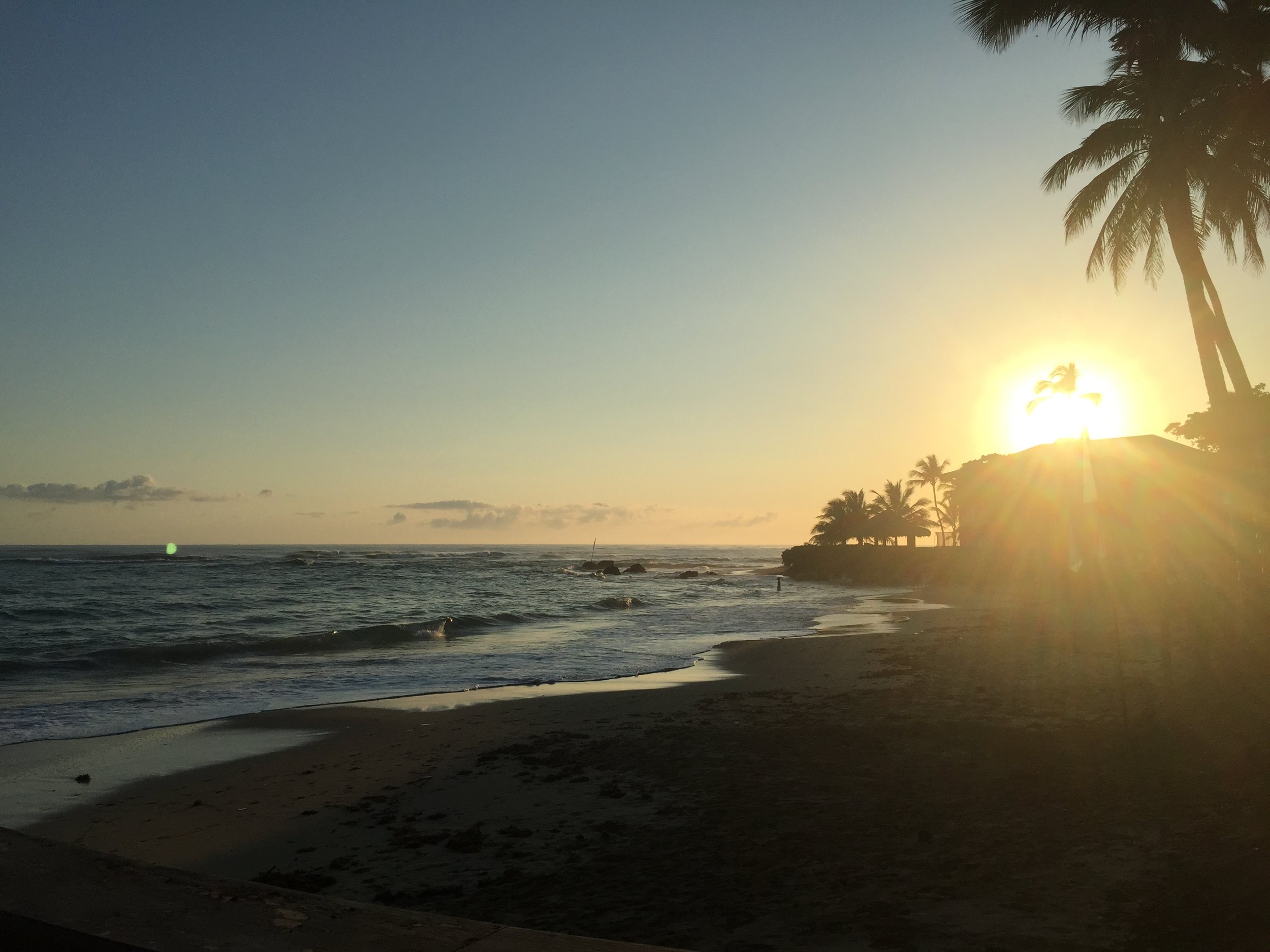
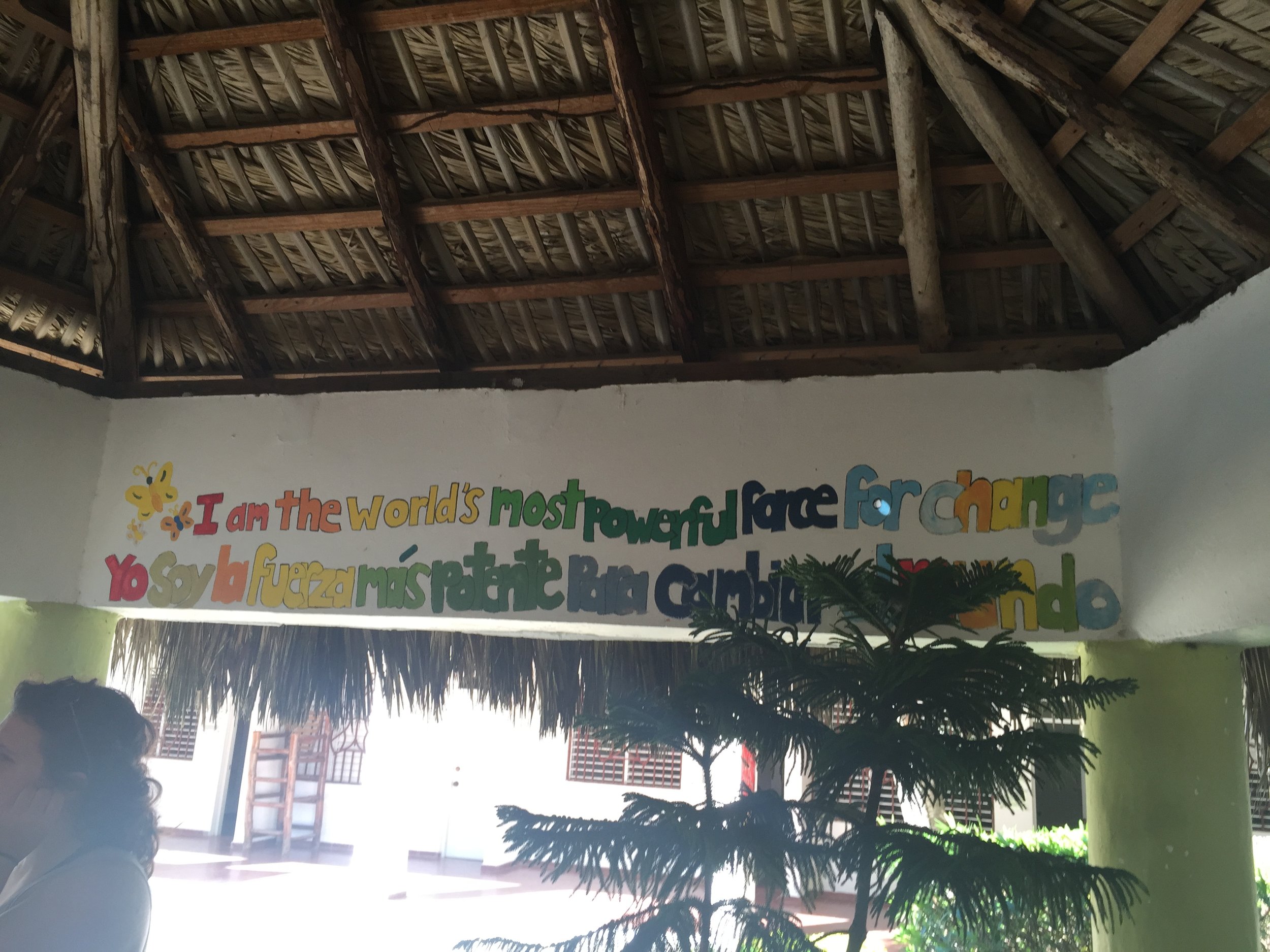
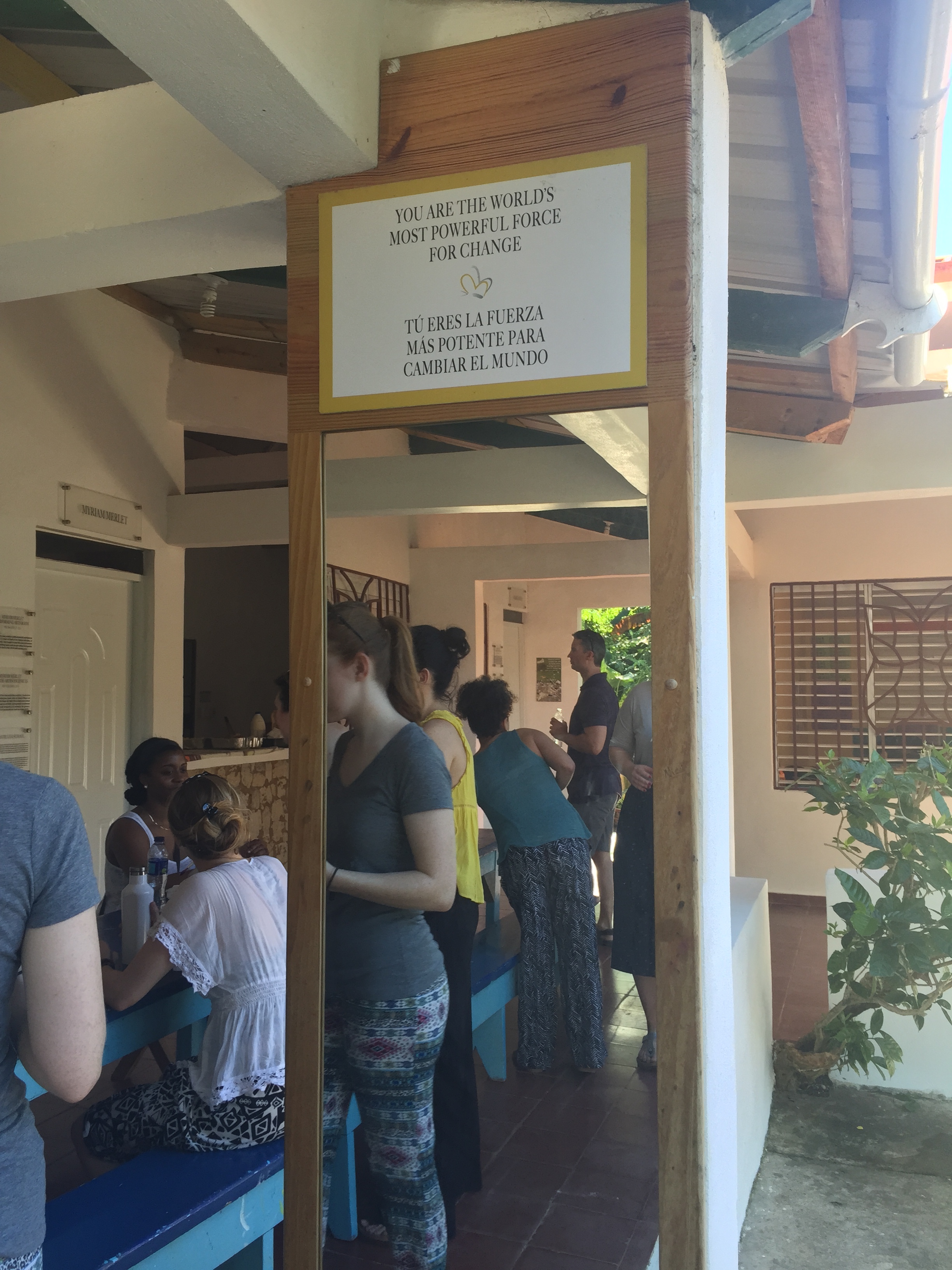
Name: Jenné
Age: 23
Hometown: Richmond, Virginia, USA
Explored: Dominican Republic
About: University of Virginia Student
"It almost felt intrusive, being there, filling up their tiny neighborhood with our prodding eyes. It felt invasive sitting in front of them as they told us, strangers, their stories. I felt I was meddling as questions filled their safe space, some of them incredibly personal. I often found myself conflicted exploring a topic I’ve never touched, in a country so foreign. I’m not quite sure what I was expecting here, but I know it wasn’t what I found.
As we made our way through the busy traffic of Cabarete, and the buzzing cars slowly devolved from the bustling streets closer to our destination, my heart slowly sank. I thought I knew poverty, I thought I knew what it meant for people to be living with little to nothing. Back in New York what came to mind was graffiti, litter, abandoned lots, and rank smells. I took in my surroundings cozily sheltered inside the air-conditioned gua gua and mentally prepared myself for whatever might be to come. The vacant stares on the faces that we passed constantly reminded me that we were strangers, “maybe we shouldn’t be doing this,” I remember thinking. I took in my surroundings, the dirty sewage water, the tiny houses so close together, the children hanging out on the streets unattended, and I wondered how I would be able to make it through this. But then the van stopped and we were greeted by smiling children playing in their innocence, teenage boys tacitly sharpening their baseball skills, and generations of families supporting one another. The despair I expected was nowhere to be found.
I’m not sure what I was expecting here, but it sure wasn’t hope. I certainly wasn’t expecting hope when a petite woman invited us into her tiny home made of random scraps of wood, cardboard, and anything else that could be made useful. But as we walked into the tiny living room, smaller than my bathroom at home, all I could see was their beaming faces filled with joy. They weren’t just happy to invite us in, they were proud of their space and everything they had built, literally, with their own hands. They told a story of strength without ever opening their mouths. Poverty does not equal deprivation. Poverty does not equal going without love, or care. Poverty does not cancel out hopes and dreams. Poverty is not what I thought it was.
I’m not sure what I was expecting here, but it sure wasn’t to be forced to search within myself, to be awakened, or to have learned so much about what is right in front of me. It’s funny because as I told my friends about my trip I said, “I wasn’t expecting to actually learn. It’s a class and I should learn, but I didn’t think I actually would.” I learned not only about adolescent girls, how poverty and education correlate, and women’s issues in general, but I was also forced (not in a bad way) to learn about myself, the human condition, and what it means to be a change agent. It forced me to look at the world, and my personal surroundings in a completely different light than I had ever been allowed to explore. Gender, sex, sexual orientation, the patriarchy, reproductive rights, capitalism, racism, and the pay wage gap: important life issues, each offering an opportunity to talk about people different from me.
I’m not sure what I was expecting here, but it sure wasn’t to experience something so pivotal and life changing. The most important thing about this class and my biggest take away was the ability to unlearn. We didn’t unlearn the material we were taught, but we unlearned the things society has told us all our lives; women must cook and clean, someone with money has all of the power, white people are better than other races, able-bodied people are better than people with disabilities. We questioned the very structure of society and examined how this structure limits so many people and pushes forward a very homogenous group: heterosexual cis-gender able-bodied white men. I was allowed to open my mind up to people from different backgrounds and learn about the struggles of those less privileged than myself. I was made to recognize my own privilege, and think constructively about how to use it positively and not abuse it. I learned about different institutions of privilege and oppression, grew more respectful of these differences, but most importantly learned to ask the right questions to get educated. I was challenged, mentally and emotionally. For the first time in a long time I had to deal with my problems and although I didn’t always share with the group as a whole, I spent much of the trip combating past demons, fighting battles that I did not create, and figuring out my next steps. It was hard, but worth it.
I’m not sure what I was expecting here, but it certainty wasn’t to see the hidden beauty behind the litter, barefooted children, and shack like homes, or to realize that hope comes in many forms. Sometimes it is a great big hug from a tiny human stranger that doesn’t even understand your language. Sometimes it is the Bachata, proudly danced among friends. Sometimes it is the connection you feel to teachers who just get it. Other times it is a girl, shy in her vulnerability telling you her story as she cradles her precious baby. Often it’s a quote by Alice Walker, Toni Morrison, or Bell Hooks. Occasionally it is new friends laughing over an authentic Dominican meal, or crying for one another while swimming in the same ocean. Maybe one day it will be Jenné Nurse, Executive Director of ___________, non-profit organization. Every time it is a vision carried out, a dream realized. It’s the blessings we find in the storm, a sentence, a smiling face, a new friend, a journal entry, a thought, a swaying hip, a newborn baby, toes in the sand, crying eyes, hot sunny days, oppression, dreams, power, marginality, vision, incarcerated women, gender, kites in the sky, and love. I am hopeful. I am forever changed."
